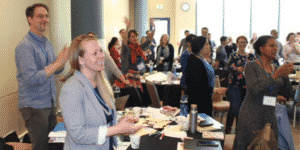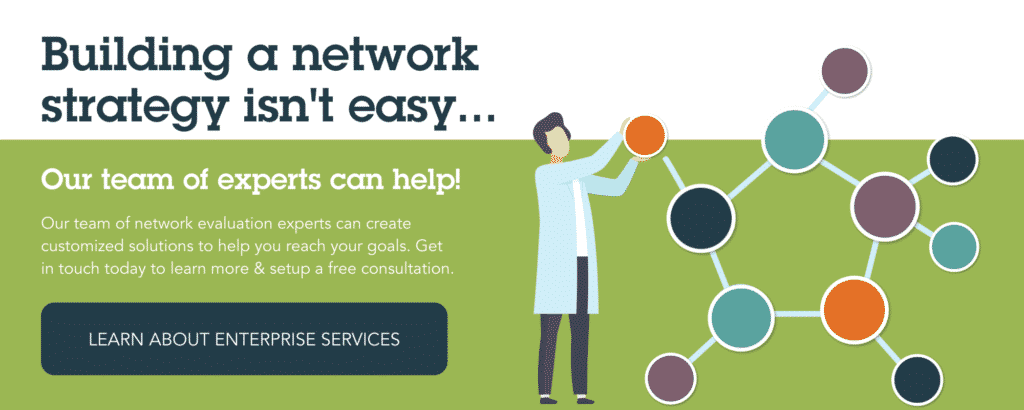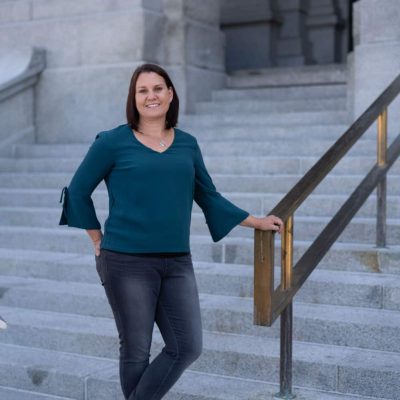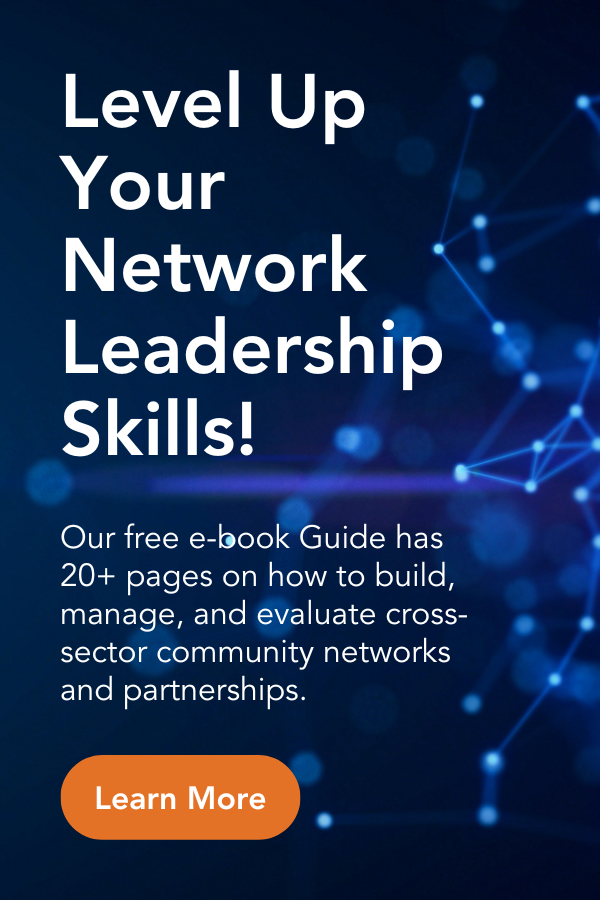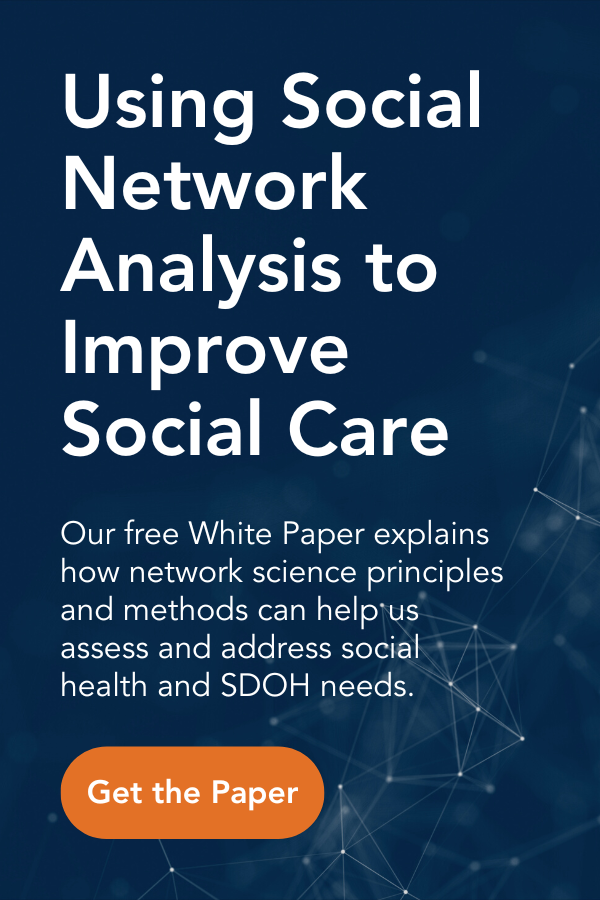As a Start Up, Becoming a Social Enterprise Has Been A Journey!
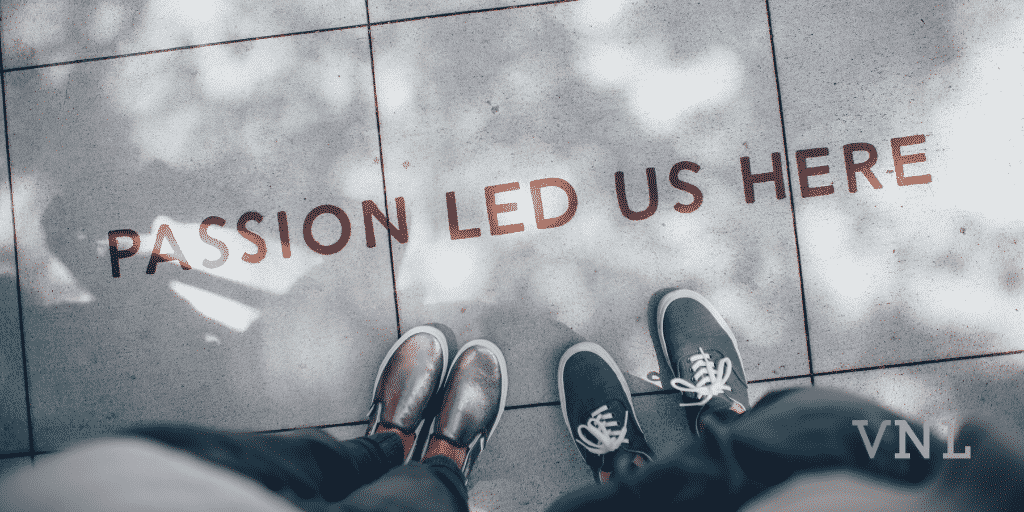
Taking the road less traveled.
The decision on what kind of organizational entity to become is far more challenging than we ever assumed when we set up Visible Network Labs. The choices seem straightforward…either you are a business, nonprofit, or a government entity. But even those three categories have multiple categories within them. Nonprofits can be a 501(c)3, 501(c)4, etc…and while the majority of nonprofits are 501(c)3’s (which is a designation for a charitable, educational, or religious mission tax-exempt status), there are twenty-eight other types of 501(c) eligible groups. And becoming a private company is not a simple decision either and there are a lot of variations. You can be a sole proprietorship, general partnership, limited partnership, or corporation and from there you can decide to become a LLC, a S Corporation, C Corporation, or a B Corporation – all with different tax implications and rules to abide by. That’s not even all the options!
We landed on a clear path towards becoming a Social Enterprise, and we put a lot of thought into into this with a focused call to action. While this is definitely a trend that more and more people are interested in, there are not a lot of examples to guide a new startup.
The truth is, the road to this decision had a few bends in the road. When we decided to launch, we had partners waiting to sign up to work with us, and we needed an entity fast. So we did the easiest thing we could – we created a business. This gave us a lot of freedom to be flexible and adaptive for communities we work with. However, what we do is ultimately for the public good, and our team are veteran public servants so we quickly started to examine just what kind of business we wanted to be. We are mission-driven and we began to wonder if part of the business should be put into a nonprofit. Nonprofits take a LONG time to stand-up and the fees to do so are high (and we understand that, because they are tax-exempt, so need to be put to a lot of scrutiny – the high fees, well, that’s harder to understand!). After consulting with an attorney, we decided that we may want to pursue a nonprofit application because we think that our Learning Lab work may fit into that, as well as our evaluation and research. But we are still working out the details, getting input from stakeholders and advisors, and building out a strategy for greatest impact. We will keep the technology in the for-profit social enterprise because we are exploring all the ways we can resource it. Believe us – it’s expensive, but we are unstoppable in making it happen, so we are working on the most diverse funding portfolio we can to build it all out.
SOCIAL ENTERPRISES HAVE THEIR BENEFITS.
Being a social enterprise that is incorporated as a private entity with a social mission, has opened a few options for us (like seeking out angel investments) that we could not do otherwise. We have our equity to leverage, and we are carefully and thoughtfully strategizing how we can use that to resource this movement, to reach more people, to strengthen an entire society’s social connectedness.
We Were Wrong to Assume That People Would Know What That We Identify as a Social Enterprise

We ended 2018 with some bad news. While getting rejected for funding is something we believe is part of the natural cycle of running an organization, this rejection had something about it that just seemed off. The reviewer’s comments were small issues we could have easily mitigated in a clarifying conversation. So we wrote a note to the funder, expressing our surprise and suspicion of a bias. After a quick 10 minute phone conversation with the funder, we found out our intuition was right.
FALSE ASSUMPTIONS
It turns out that they had all kinds of assumptions about us as a private sector company. Why were we charging for things? Why was there a paywall to access our tools? Where they “just funding us to make profit”? While we are proud of our diversified funding strategy, and many of our funders congratulate us on building a sustainable model, this funder found parts of it suspicious. This experience made us realize that we had not done our due diligence in communicating well with our community, funders, and other stakeholders. We realized that we had taken for granted that people would understand what we are doing, if they just knew our roots and careers before starting a private sector business.
So now, we share our business model principles in the most transparent way we know how – by posting them straight on to our website. We decided that we would keep a transparent log of our history, our decisions, our current status. If you meet us in person, you will know that this is how we work and talk about ourselves. But we also know now that we need to articulate our values, principles, and decisions to gain trust.
We Are Making Some Public Promises to Hold Ourselves Accountable.
We are very excited about the next few months. We are embracing this lesson whole-heartedly and plan to test our own assumptions about ourselves, vet our ideas and practices with our partners and customers, and encourage our team and advisors to hold each other accountable. And to begin that journey, we are making a few promises public.

We promise to hold ourselves accountable and responsible for driving every decision with heart, quality, and potential for impact.
We promise to finalize our B-Corps certification and follow the requirements for this third-party certification. There is a lot that goes in to this and we are going through the list of requirements thoughtfully and with purpose.
We promise to make time every day for the people impacted by our work, to listen to them, ask for their help and guidance, and to use our special skills and our resources to impact health and well-being for as many people as we can.
We promise to continue to diversity our funding so that we are not reliant on one funding source, because if we cannot stay afloat, then we cannot serve communities.
While we were disappointed not to get the funding we applied for, we still feel like we won big-time for the lesson we learned in the process. We are proud of our journey to become a social enterprise, and even have some new org structures coming in 2019. We’re tracking that journey on our website, both through our blog and in our narratives. We will update as things change. If you want to join us on this journey, sign up here.
About the Author: Dr. Danielle Varda
CEO, Founder, Professor, & Mother of Three Spirited Girls
Danielle is a scientist turned start-up founder, leading Visible Network Labs as CEO. Her combination of 20 years as a network scientist studying social connectedness and health, published author, 12 years as a tenured professor at the University of CO Denver, and her successful launch and scaling of the Center on Network Science came together in one big idea to start VNL. She is an entrepreneur, technologist, network scientist, fundraiser, and mother to three spirited girls. Her calling came when she realized her unique ability to develop technology solutions bridge complex systems science with everyday applications in communities, organizations, and business. She is a nationally known expert and keynote speaker on applied network science, with specific expertise in health system, public health system, entrepreneurial ecosystems, and educational system approaches. Danielle has published over 30 peer-reviewed articles on networks and their impact on health, well-being, and economic outcomes. Danielle leads VNL’s strategic partnership approach, is the company’s lead fundraiser, and has a vision for how to utilize network science to solve our most pressing and intractable problems.
In addition to her leading VNL, she is also an Associate Professor at the School of Public Affairs, University of Colorado Denver where she is Co-Director of the Center on Network Science, Director of the Nonprofit Concentration in the MPA program, and Advisor to the Dual MPA-MPH Degree. Additionally, she holds a secondary appointment in the Colorado School of Public Health, Department of Health Systems, Management, and Policy. She also has a courtesy Associate Professor appointment in the School of Information Sciences at the University of CO Boulder.
|
|
Thank you for Signing Up |

More News from Visible Network Labs
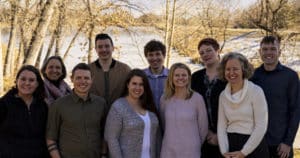

How I learned that anything is possible, if you are willing to take the leap!
